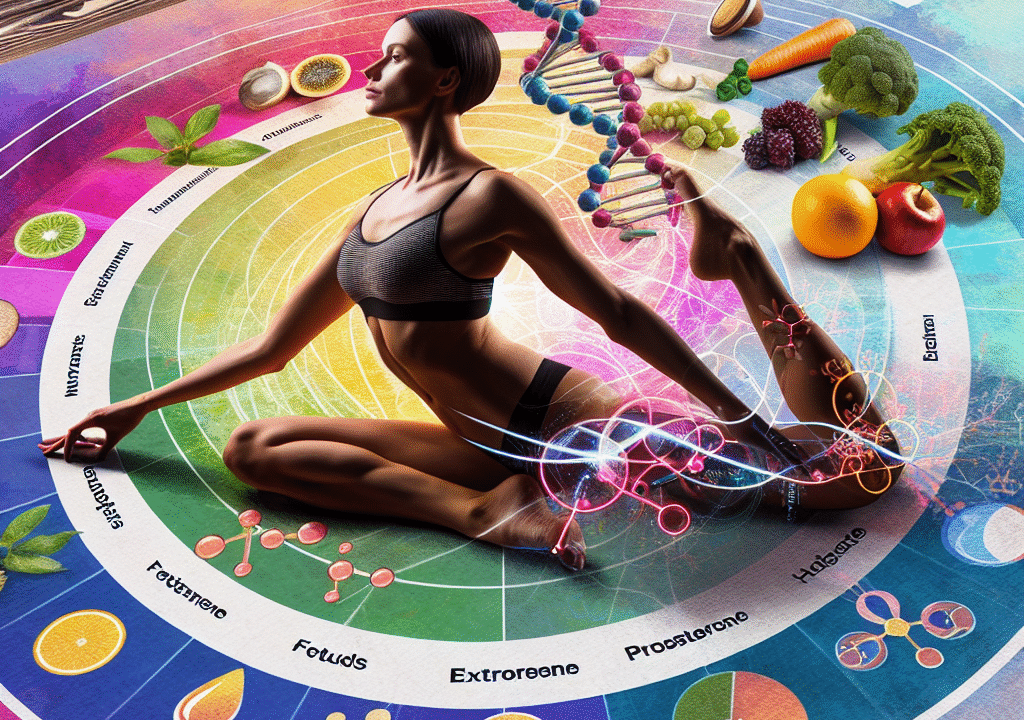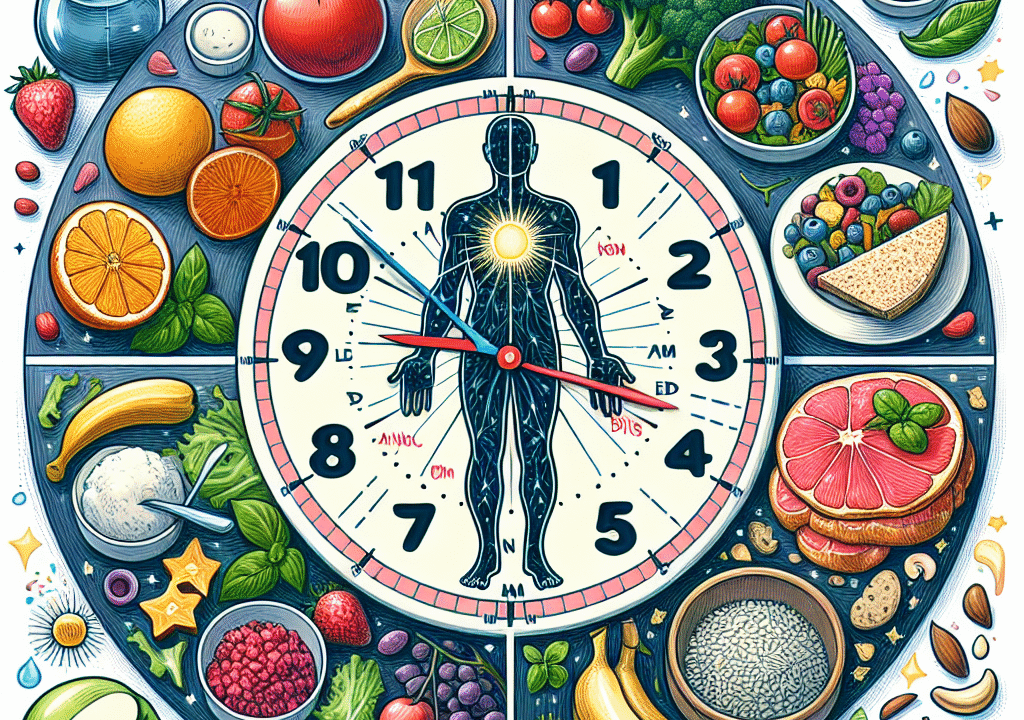Navigating Plant-Based Nutrition with the Micronutrient Map
Adopting a plant-based diet can offer a wide array of health benefits — from improved cardiovascular function and reduced inflammation to a decreased risk of type 2 diabetes and certain forms of cancer. However, successfully transitioning to a plant-based lifestyle also means staying aware of specific nutrients that are either less bioavailable in plants or naturally limited in vegan and vegetarian food sources.
This is where the concept of a “Micronutrient Map for vegans and vegetarians” becomes essential. This guide is designed not to spark fear, but to empower you with practical tools that highlight common nutrient gaps and provide easy, science-backed solutions. Whether you’re flexitarian, fully vegan, or somewhere in between, this approach can support your overall well-being and energy levels.
Read on to explore the essential micronutrients, expert tips on optimizing intake, and strategies to personalize your plant-based nutrition plan.
The Micronutrient Landscape for Plant-Based Diets
Micronutrients — including vitamins and trace minerals — are needed in small quantities, yet they play a significant role in immune defense, mental clarity, and metabolic health. While plant foods are rich in fiber and macronutrients, they can lack certain essential micronutrients like vitamin B12, iron, and iodine.
“People often assume that ‘natural’ automatically means nutritionally complete,” explains Dr. Erin Nolen, a registered dietitian who specializes in plant-based diets. “But even diverse vegan diets require thoughtful planning to avoid long-term deficiencies that could affect cognition, hormonal health, and immunity.”
This guide provides a practical breakdown of key plant-based nutrients — along with actionable tips to help you stay energized and well-nourished.
Vitamin B12: The Essential Nerve and Brain Support
Why it matters: Vitamin B12 is vital for red blood cell formation, DNA synthesis, and nervous system health. A deficiency can lead to fatigue, cognitive changes, and nerve damage.
Did you know? Up to 92% of vegans could be at risk for B12 deficiency if they do not regularly supplement (Pawlak et al., 2014).
Where to find it: Fortified non-dairy milks, fortified cereals, and nutritional yeast (check for added B12). The most reliable source? A quality B12 supplement containing cyanocobalamin or methylcobalamin.
Pro tip: Weekly high-dose supplements (1,000–2,500 mcg) or daily low-dose (250–500 mcg) are both effective. Speak with your healthcare provider to determine the best dosage for your needs.
Iron: Energize Your Body Naturally
Why it matters: Iron is essential for oxygen transport in the blood and supports immune function and concentration. Non-heme iron from plants is less efficiently absorbed compared to heme iron from animal products.
Top sources: Lentils, kidney beans, quinoa, tofu, pumpkin seeds, and iron-fortified cereals. Enhance iron absorption by pairing these with vitamin C-rich foods like oranges, bell peppers, or strawberries.
Pro tip: Tannins in tea and coffee can inhibit iron absorption. Avoid drinking them within an hour of meals and choose lemon water or herbal teas instead.
Omega-3 Fatty Acids: Support for Brain and Heart Health
Why it matters: Omega-3 fatty acids — particularly EPA and DHA — support cognitive health, heart function, and inflammation regulation. These forms are largely found in fatty fish, making plant-based intake a bit tricky.
Where to find them: ALA (alpha-linolenic acid) from flaxseeds, chia seeds, hemp seeds, and walnuts is your first step. Since the body converts only a small percentage of ALA into DHA and EPA, consider a vegan omega-3 supplement derived from algae.
Pro tip: Add ground flaxseed to smoothies, oatmeal, or baked goods. For direct DHA and EPA, algae oil supplements are a sustainable and effective solution.
Calcium: Building Strong Bones Without Dairy
Why it matters: Calcium does more than build bones — it also assists with muscle function, nerve signaling, and heart rhythm regulation. Without dairy, alternative sources must be prioritized.
Best sources: Fortified plant milks, calcium-set tofu, tahini, almonds, kale, and bok choy. Spinach should be limited as its oxalate content reduces calcium absorption.
Pro tip: Rotate different calcium-rich plant foods weekly and check labels on fortified products — aim for options that offer at least 30% of your daily value per serving.
Vitamin D: Boost Immunity and Fight the Winter Slump
Why it matters: Vitamin D strengthens your immune system, supports mood regulation, and helps your body absorb calcium. Yet, few foods naturally contain it, and deficiency is common, especially in colder climates.
Key sources: Fortified plant-based milks, UV-exposed mushrooms, and natural sunlight. Many experts recommend supplementation, particularly during fall and winter.
What experts say: “Low vitamin D is shockingly common among young adults,” notes Dr. Lissa Morgan, a functional medicine specialist. “I recommend a vegan-friendly D3 supplement — often sourced from lichen — for most individuals.”
Pro tip: Aim for 600–2000 IU daily depending on your lab results. Choose a vegan D3 supplement to ensure adequate blood levels year-round.
Zinc: Strengthen Your Immunity and Skin Health
Why it matters: Zinc supports immune function, hormonal balance, and wound healing. Plant-based diets can fall short, as phytates in grains and legumes limit zinc absorption.
Best sources: Cashews, hemp seeds, oats, chickpeas, and pumpkin seeds. Soaking legumes and grains before cooking can improve bioavailability.
Pro tip: Watch for signs such as frequent colds or slow-healing cuts. A modest zinc supplement may be beneficial if diet alone isn’t sufficient.
Iodine: Secure a Healthy Thyroid Function
Why it matters: Iodine is vital for producing thyroid hormones that control metabolism and neurological development.
Nutritional challenge: The iodine content in plant foods varies significantly, depending on soil quality. Sea vegetables and iodized salt offer more consistent options.
Pro tip: Cooking with iodized salt provides a reliable dose — about 150 mcg of iodine per 1/4 teaspoon. Enjoy seaweed in moderation and watch out for overly high-iodine varieties like kelp.
Selenium: The Thyroid and Antioxidant Ally
Why it matters: Selenium plays an essential role in antioxidant activity and thyroid hormone metabolism. Similar to iodine, selenium availability in plant-based foods depends on soil concentration.
Natural source: Just one Brazil nut can supply your daily selenium needs.
Pro tip: Limit yourself to 1–2 Brazil nuts daily to avoid exceeding the upper intake limit of 400 mcg. These make a great addition to smoothies, salads, or as a quick snack.
Create Your Personalized Micronutrient Map
With a clear understanding of your nutritional needs, it’s time to take actionable steps to ensure optimal balance:
1. Track meals for 3–5 days using a tool like Cronometer to identify gaps in your intake.
2. Include a wide variety of vegetables, legumes, whole grains, nuts, and seeds throughout the week.
3. Choose fortified foods labeled as vegan-friendly for nutrients like B12, D, calcium, and iron.
4. Use supplements wisely. Nutrients such as B12, D, and omega-3s often require supplementation for those on plant-based diets.
5. Reassess your nutritional needs seasonally or when lifestyle factors (exercise, stress, age) change.
Proactive tracking and supplementation can help you prevent deficiencies before they affect your energy, focus, or long-term health.
Final Thoughts: Let Food Guide Your Wellness Journey
Success on a plant-based path isn’t about what you remove — it’s about what you mindfully add. Your health thrives when you intentionally include nutrient-dense foods, rotate ingredients, and incorporate key supplements when needed.
Using a Micronutrient Map can transform confusion into clarity. It’s not a rigid diet plan — it’s a flexible, nourishing approach that evolves with your individual needs.
When in doubt, consult trusted health professionals and use verified sources for supplements and information. With these tools at your side, you’re well equipped for long-term well-being on your plant-powered journey.
References
– Harvard T.H. Chan School of Public Health. (2022). The Nutrition Source – Vegetarian and Vegan Diets. https://www.hsph.harvard.edu/nutritionsource/healthy-weight/diet-reviews/vegetarian-diet/
– Pawlak, R., Lester, S. E., & Babatunde, T. (2014). The prevalence of cobalamin deficiency among vegetarians assessed by serum vitamin B12: a review. European Journal of Clinical Nutrition, 68(5), 541–548.
– National Institutes of Health. (2021). Iron – Fact Sheet for Health Professionals. https://ods.od.nih.gov/factsheets/Iron-HealthProfessional/
– National Institutes of Health. (2022). Vitamin D – Fact Sheet for Health Professionals. https://ods.od.nih.gov/factsheets/VitaminD-HealthProfessional/
This content is now optimized for web publishing with improved structure, enhanced readability, and clear, informative subheadings to guide plant-forward individuals through their nutrition goals.


